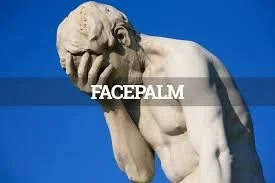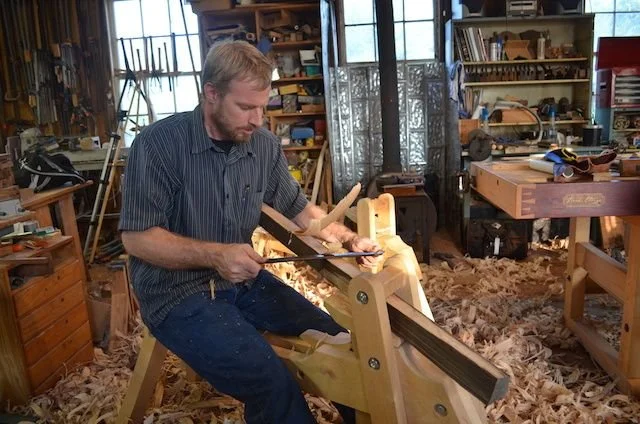Boot Camp: “Gearing Up for a Crisis” – Genesis 14 (Part Two)
One of the most frustrating parts of life is that we encounter people who seem somewhat clueless as to taking responsibility for their own choices, and facing the risks of their own behavior. In our day, we can easily be surrounded by people who want adult choices, but don’t feel responsible to make adult decisions. Let me offer some examples that may hit close to people you know or perhaps work with in our community…
Joe lives life fast and loose. He doesn’t have insurance on his property, because he thinks it is a “colossal waste of money.” He eats what he wants when he wants it. He buys what he likes and thinks a savings account is only for rich people. He isn’t interested in a retirement account because he would rather spend his money as he earns it. After all, how does he know he’ll be around long enough to spend what he puts aside? If he isn’t, the whole idea of saving it was just a waste. Joe fell one day from a little ladder outside his house. It wasn’t a big fall, but it was enough for Joe to have to get a bone set, and a surgery on some ligament damage. Out of work for a short time, Joe was incensed with his mortgage company for insisting he pay the bill. His electric got shut off. He steamed over the fact these “greedy companies don’t have any conscience about his pain.” He doesn’t connect the life he has lived for decades with his recent encounter of pain and loss. He thinks companies are the problem – not his choices.
Charlotte grew up in a Christian home, but some of her choices show she didn’t really follow what she was taught. She made critical compromises in moral areas that ended up costing her a great deal. On the street for a time, her family came to “bail her out” multiple times – but those stories didn’t end in change of her behavior. She kept expressing that she “needed help” because she wouldn’t take the steps necessary to solve her issues. She kept concluding that she was a victim, rather than recognizing her choices were pushing her in the opposite direction that she wanted to go.
Irresponsible people like these aren’t new to society. In our last lesson, we slowed down our march through Genesis and took a little time to contemplate the CAUSE of the battle of Lot and Abraham, and observe how wrong choices led to real problems. In this lesson, I want to look more closely at the people who are highlighted in the story of the “Battle of the Jordan River plain” and its aftermath in Genesis 14. As we do, note the people and their various attitudes. You will find Joe and Charlotte tucked into the story. You will also find a wonderful new friend for Abraham named Melchizedek. You will also learn an enduring truth:
Key Principle: Maturity is about recognizing stewardship and taking responsibility.
In fact, Abraham had three kinds of people in his life that are carefully highlighted in the story. Bear in mind he wasn’t always reflected as a good guy without flaws in this mini-series, but in this episode of his life he shined in a tale of faithfulness surrounded by three different kinds of people. Let me introduce the players in the story:
• First, there was a man we will refer to as the “Godless Entitled Chief.” Bera, the king of Sodom, who knew his choices led his life to failure, still felt he should get “his piece of the pie” from the hard-fought victory of Abraham. He even attempted to make himself look somewhat generous when he requested what was earned by someone else’s labors.
• Second, there was the believer who made bad choices, only to become a “Clueless Taker.” Lot was raised as a God-follower, but repeatedly refused a circumspect life and dwelt among the world’s worst characters. That brought him a solid stream of troubles. As a result, he became the “Bail-out Believer” who sapped time, resources, and energy from Abraham. That would have been fine, but he never seemed to stand on his own in maturity. You may know believing friends who thinks the Christians around them should take care of the bill created by their choices.
• Thankfully, there is a third man in the story. He is a God-follower, and he is a mature believer. We will call him our “Godly Encourager,” Melchizedek, a God-follower and encourager of Abraham.
Let’s get into the text and look carefully at the story.
The Crisis
First, let’s read about the crisis that introduced the men into the narrative. Drop your eyes into the story of a war…
Genesis 14:5 In the fourteenth year Chedorlaomer and the kings that were with him, came and defeated the Rephaim in Ashteroth-karnaim and the Zuzim in Ham and the Emim in Shaveh-kiriathaim, 6 and the Horites in their Mount Seir, as far as El-paran, which is by the wilderness. 7 Then they turned back and came to En-mishpat (that is, Kadesh), and conquered all the country of the Amalekites, and also the Amorites, who lived in Hazazon-tamar.
The text drew the lines around the adversaries. Chedorlaomer raided the deserts of wilderness tribes in what is today Israel, Jordan and eastern Egypt (the Sinai). Because the areas may be unfamiliar to you, let me share that he subdued the “tribes of Rephaim” in what will later be the “hill country of Judah” west of Jerusalem, along with the “Zuzim,” the “Ham,” the “Emim,” the “Horites,” and the “Amalekite tribes” in several different deserts, or what the Bible calls “the wilderness” areas. These tribes were used to a nomadic life, and even their “cities” were often massive tent encampments.
That background was supplied so that Moses could record the staging of the “Battle of the Jordan Plain” in Genesis 14:8-9.
Genesis 14:8 And the king of Sodom and the king of Gomorrah and the king of Admah and the king of Zeboiim and the king of Bela (that is, Zoar) came out; and they arrayed for battle against them in the valley of Siddim, 9 against Chedorlaomer king of Elam and Tidal king of Goiim and Amraphel king of Shinar and Arioch king of Ellasar—four kings against five.
Essentially, five tribal chieftains including Sodom, Gomorrah, Admah, Zeboiim and Bela (or Zoar) joined forces against the raiders from the Mesopotamian plains far east of them. The four raiding tribes were clear invaders: Chedarlaomer of Elam, Tidal of Goiim, Amraphel of Shinar and Arioch of Ellasar. They were muscling in on an expanded set of trade routes and gaining the allegiance of many tribesmen to build a desert network of caravan routes. Cities in league near the Dead Sea were a problem for the Mesopotamians. Some of the cities of that region were among the oldest in the world, like Jericho. Sodom and Gomorrah appear to be the largest of those cities.
From an archaeological standpoint, there is a debate about where the cities of Sodom and Gomorrah were (since they were destroyed). Some archaeologists look for remains of a city – but that presupposes the ruins survived after the destruction of the places.
East of the Dead Sea is a site from the “Early Bronze Age” (Patriarchal Period) called Bab edh-Dhra. There was a small city of about 1,000 individuals that lived in an area that has been partially excavated. The remarkable feature of Bab edh-Dhra is the number of graves found near the site. While the city was apparently small, an estimated 20,000 tombs are located beside the site. These family tombs would have held approximately half a million people and over 3 million pottery vessels. Some of us think that represented cities that were eliminated in Genesis.
What Went Wrong in the Fight?
Genesis takes us back to the scene and describes what the home team army failed to do.
Genesis 14:10 Now the valley of Siddim was full of tar pits; and the kings of Sodom and Gomorrah fled, and they fell into them. But those who survived fled to the hill country.
Though the defenders of the plain were on “home turf,” it seems that Chedarlaomer and his allies routed the local tribal warriors of the plain, because they seemed unable to maneuver well in the sinkholes and tar pits of the Jordan Valley near their own cities. I suspect they got trapped in pockets and split up by the superior force.
It is a bit ironic that the men of Sodom ended up trapped in a slime pit on home turf.
The plains tribes were demoralized and shaken, so they broke off their defense and fled into what would later be known as the “wilderness of Judah” leaving their home encampments, wives and children undefended. The battle won, Chedarlaomer and his raiders snatched all that they could and started to journey north toward Galilee, Golan, Syria, and eventually home. Genesis told the story this way:
Genesis 14:11 Then they took all the goods of Sodom and Gomorrah and all their food supply, and departed. 12 They also took Lot, Abram’s nephew, and his possessions and departed, for he was living in Sodom. 13 Then a fugitive came and told Abram the Hebrew. Now he was living by the oaks of Mamre the Amorite, brother of Eshcol and brother of Aner, and these were allies with Abram.
Sodom and Gomorrah were abandoned, their people captured by Chedarlaomer and their army probably returning slowly in shambles as people trickled back to the region. Among the captive from the cities of the plain being carted north was Lot, nephew of Abram. Uncle Abe got word at his plight when a man who evaded capture visited the encampment of Abe, near Hebron.
The Counterattack
Moses continued the record of the story:
Genesis 14:14 When Abram heard that his relative had been taken captive, he led out his trained men, born in his house, three hundred and eighteen, and went in pursuit as far as Dan. 15 He divided his forces against them by night, he and his servants, and defeated them, and pursued them as far as Hobah, which is north of Damascus. 16 He brought back all the goods, and also brought back his relative Lot with his possessions, and also the women, and the people.
There are a number of insightful comments offered in these verses.
First, we can clearly see that Abe grew considerably after his encounter in Egypt years before. In chapter 12, Abram acted like a coward when he came into Egypt and didn’t protect his wife. He thought of himself in earlier times. In this account, it appears things had changed. Abe grew. He stood up because he possessed something the world around him did not have: He grasped the promises of God and walked in God’s plan for his life.
Second, it is important to note that Abraham used the prosperity God gave him to grow his sense of responsibility. Things seemed progressively less important with each story after Egypt, and people seemed more important.
At the same time, I think it is the END of the text of Genesis 14 that reveals its true importance. As Genesis 14 closed, contrasting world views are highlighted in the people Abraham met.
The Homecoming
In verses 17 through 24, we see a record of two different leaders talking to Abram. First, Melchizedek, the king of Salem (likely Jerusalem) came out to meet Abram. Next, Bera, the king of Sodom made a request of Abe. All the while, quietly standing by was Abe’s nephew Lot.
Listen to their contrasting voices. For reasons that will become obvious, I want to take them out of order…
First, look at the meeting with the King of Sodom:
Genesis 14:21 The king of Sodom said to Abram, “Give the people to me and take the goods for yourself.” 22 Abram said to the king of Sodom, “I have sworn to the Lord God Most High, possessor of heaven and earth, 23 that I will not take a thread or a sandal thong or anything that is yours, for fear you would say, ‘I have made Abram rich.’ 24 I will take nothing except what the young men have eaten, and the share of the men who went with me, Aner, Eshcol, and Mamre; let them take their share.”
Sodom’s king commanded a wicked people in the wake of a failed war. The city would be a mere memory had it not been for Abraham. Clearly the king’s strategies hadn’t been working, and this was a time when he should have shown humility. I ask you honestly, “Do his words sound humble?” He said two things:
First, he said: “Give the people to me.”
Second, he said: “Take the goods for yourself.”
Sodom’s failed chief, in essence, offered to “share” the spoils from the battle with Abraham, but offered no praise or blessing to Abram. It is clear by Abe’s response that on the scene and in the time, Abe thought anything he “shared” would significantly compromise the way the story was recalled later. Lest we come to believe Bera somehow was humbled, remember by Genesis 19 God will completely destroy his city. John Calvin perceptively remarked that Abram knew others would falsely accuse him of using the “rescue of Lot” as a pretense to get personal gain. Abe understood that is what Bera would have done if the situation were reversed.
Next, listen to the record of his meeting with Melchizedek, king of Salem:
Genesis 14:17 Then after his return from the defeat of Chedorlaomer and the kings who were with him, the king of Sodom went out to meet him at the valley of Shaveh (that is, the King’s Valley). 18 And Melchizedek king of Salem brought out bread and wine; now he was a priest of God Most High. 19 He blessed him and said, “Blessed be Abram of God Most High, Possessor of heaven and earth; 20 and blessed be God Most High, Who has delivered your enemies into your hand.” He gave him a tenth of all.
What a different tone to this king over Bera of Sodom! As he brought out bread and wine of celebration, he acted the part of a priest. It was clear that he responded to the situation of Abraham’s victory with praise to God. Melchizedek’s words of praise were directed at God for Abraham. He was the kind of encourager every believer needs in life – the kind that points us back to God while celebrating our progress with us!
The king of Salem pressed Abe to see that God was at work on his behalf. He didn’t try to rob him of the victory, but rather pointed out the source of his blessing. In the parade, it is good to get the gentle reminder that we accomplish by the Lord’s hand.
While the response to the king of Sodom would have felt like paying a tax, the response to the king of Salem felt like celebrating God’s goodness.
Don’t forget that Lot was also there.
His poor choices led him to be a part of the problem. Abe could have been hurt or killed because of the life choices of Lot. At the very least, he was diverted from his life tasks because of them.
Do you see the three people Abraham encountered?
• One was a believer who made choices that were irresponsible and ungodly – and needed Abe and his men to come to the rescue and use God’s resources to bail them out.
• One was a non-believer who projected his value system on Abe, and acted entitled to share in the good result when his life strategies caused the problems to begin with.
• One was a fellow worshiper who led Abe to conclude that victory came because God was active at work on his behalf.
Let’s say it another way:
In his life, he had an immature “taker,” who sapped his energy without any sense that is what he was doing. He made choices and didn’t pay the end by himself. He didn’t seem to connect the dots between his choices and the number of people he drew into harm’s way.
In his life, he had an entitled voice from the fallen world around him. This man didn’t connect his failed strategies and terrible life choices to his losses, but rather expected Abe to include him in the victory celebration and charged a tax to absorb some of the victory. There was no praise in his voice. There was no real desire to bless Abe. There was a demand for part of the pie and a concession that Abe could keep the secured possessions. Ironically, Bera didn’t give Abe anything Abe didn’t already have – he was artfully acting as those he should get benefit from Abe’s victory.
Finally, there was an encouraging voice of a fellow follower of God. He didn’t direct his thinking to Abe, but to the God over all of them. He drew Abe into a celebration of praise. From that, Abe gave a tithe. It wasn’t forced upon him, and no “deals” were made with Melchizedek. It was a response to being led into praise.
The point is simple: Mature believers aren’t trying to find ways in relationships to get things. They aren’t “clueless” about grabbing the fruit of another’s labor, and they don’t walk around entitled. In fact, their focus isn’t primarily on the events – but on the God Who is in control.
Humility isn’t thinking less of yourself – it is thinking of yourself LESS. Mature believers DO praise progress, but they understand it is in the context of God’s goodness and God’s provision. We win when He opens that door. We gain because He allows it to be so. They do not sing the song of pride, but of gratitude.
Here is my simple question: Who are you most like in the story?
Are you trying to follow the Lord, but you keep finding yourself unable to make it without the constant bail out of others? Let me challenge you: Your life choices must change for you to change your outcomes. If you don’t like what you’re reaping, you have to change what you are sowing. Open your heart and your ears to those who are helping you. What can you change about your life to remove the constant sense of drain you put on others?
Are you living life without recognizing how God provides all you possess? Do you feel entitled to a good life, even when your choices are largely self-serving? Have you considered how good God has been to you in providing by the work of others what you have? Do you think of yourself and how you deserve what you have or do you focus more on how God provides undeserved blessing to you? Let me challenge you: If you don’t see God at work, it may be because you don’t truly know Him at all.
Are you the encouraging voice of a friend that helps focus others on God at work in their lives? Does your counsel lift? Does your countenance show one who lives in praise of a good God? Let me challenge you: If God has been good, shouldn’t you declare Him so?
Did you ever hook a trailer to the back of your automobile and then need to back up? As you are trying to decide which way the trailer will go when you turn in a certain direction, you move slowly and keep doubling back on yourself. You pull forward again and turn the opposite way. Eventually, you see the trailer begin to go as you need it to go. What if you decided that no matter what you did, the trailer was being feisty and causing your trouble? What if you thought, “This is a bad trailer. I am stuck with a trailer that has no sense. What can I do?” If you kept pressing the gas while it was turned in the wrong direction, it would go to the wrong place, and likely harm other people or property.
Some people live that way. They feel the trailer is defective – it isn’t about their turns. They don’t re-work their method, because it is the “situation” that dominates their life and they are a victim of it. They don’t get better because they don’t own the problem. They aren’t the driver of the life God entrusted to them.
If you don’t become a steward, you will frame life as a victim of circumstance – but that isn’t what God told us to do. We are told to drive our own life toward Him. Drive! Make the turns and change what you are doing based on where the trailer goes.
You can be a help or a hindrance to others. You can bring praise or problem to them. In most situations, it comes down to taking responsibility for our life choices and where they lead. Maturity is about recognizing stewardship and taking responsibility.




